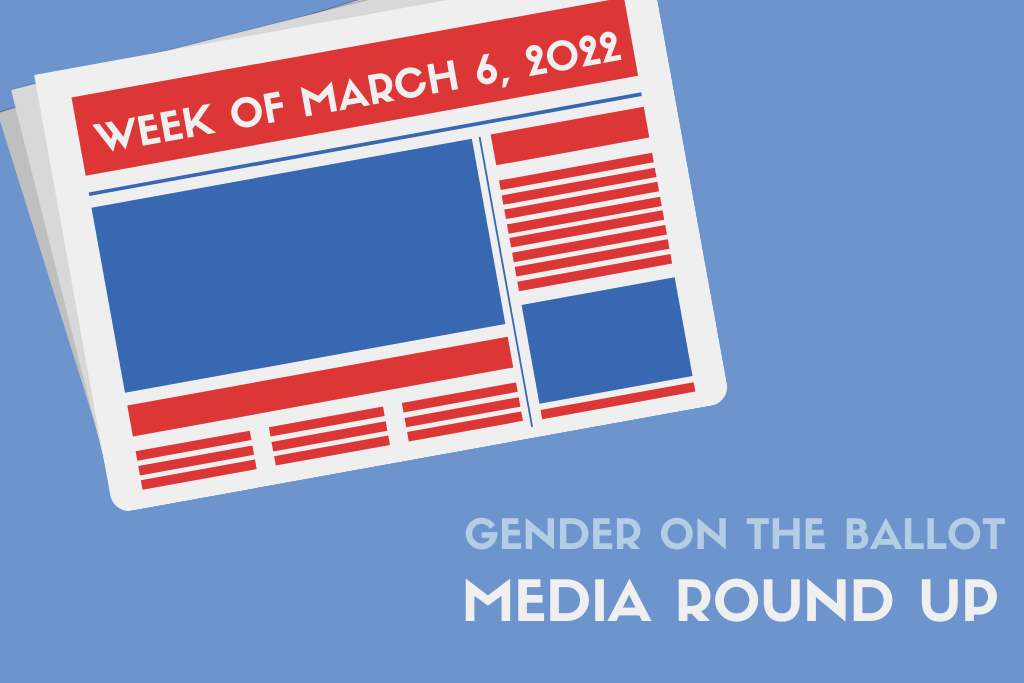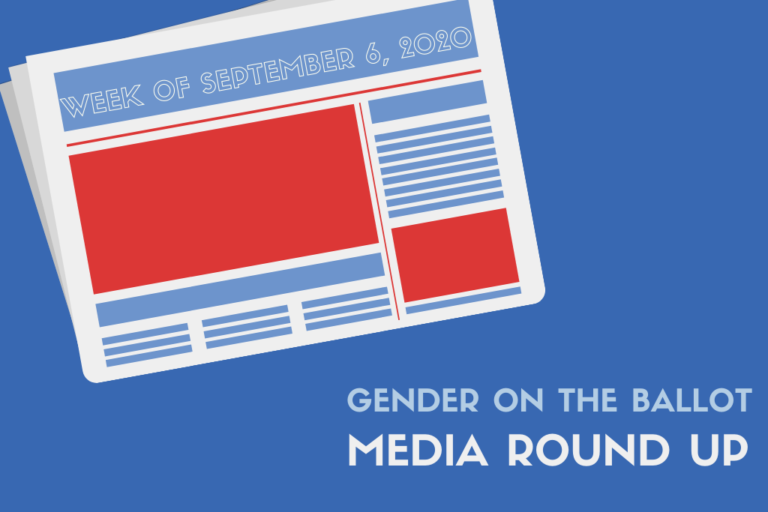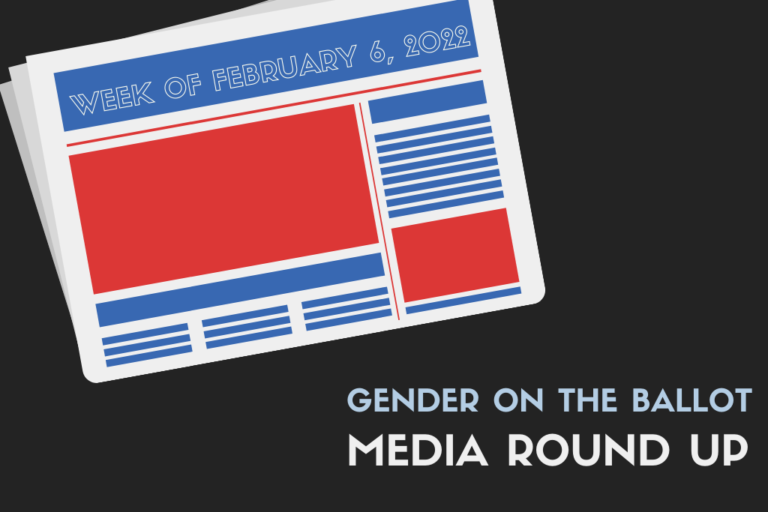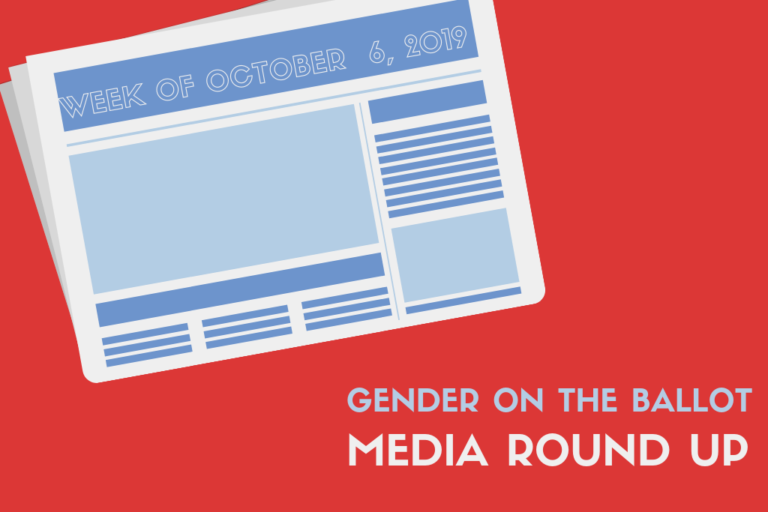Happy Friday! Welcome to our Media Round Up. Each week we’re collecting and sharing our…
Media Round-Up: Week of March 6th

Happy Friday! Welcome to our Media Round Up. Each week we’re collecting and sharing our favorite gender + politics stories. Here’s what caught our eye this week:
Womontown: How 12 city blocks in Kansas City became a radical enclave by and for women
Hannah Bailey, NPR Kansas City
Womontown founders Andrea Nedelsky and Mary Ann Hopper started their journey to establishing a self-sufficient community for LGBTQ women with the purchase of a home in Kansas City’s Longfellow neighborhood in the 1990s. After other LGBTQ women followed suit, the Womontown neighborhood grew to have 80 residents across 12 city blocks. The Kansas City neighborhood banned any mention of men, thus the reason for the unique spelling of the town’s name. As memories of Womontown faded away over the years, its founders are now trying to spread awareness of the community.
Read the full story here.
International Women’s Day reminds us that the pandemic hurt gender equality. A lot.
Jennifer M. Piscopo, Washington Post
Globally, women have suffered a great deal due to the coronavirus pandemic, now entering its third year. Some of the ways women were affected by the pandemic include lack of affordable childcare, lockdowns, homeschooling and domestic responsibilities. During the first year of the pandemic in 2020, women lost $800 million in earnings and 13 million women did not return to work the following year. On International Women’s Day in 2021, world leaders called for Covid-19 recovery that mainly focused on gender equality for women; however, research shows that little effort has been made on that call to action.
Read the full story here.
The American Garment Workers Who Helped Inspire International Women’s Day
Kat Eschner, Smithsonian Magazine
Although there is no one group that is solely responsible for the founding of International Women’s Day, its origins can be traced back to women workers. Prior to its current name, the day celebrating women and their contributions to the world throughout history was known as “International Working Women’s Day.” The purpose of International Working Women’s Day was, “to give laboring women a focusing point in their struggle for fair working conditions and pay.” After multiple groups of laboring women began to strike for better conditions and higher wages, the idea for an International Women’s Day began to form.
Read the full story here.
Biden to ask Congress for $2.6B to promote gender equity
Darlene Superville, AP News
On International Women’s Day 2021, President Joe Biden announced his plan to ask Congress for $2.6 billion to promote gender equity across the globe. Last year, President Joe Biden created the first-ever White House Gender Policy Council in order to promote gender equity throughout his administration.
“Ensuring that every woman and girl has that chance isn’t just the right thing to do — it’s also a strategic imperative that advances the prosperity, stability, and security of our nation and the world,” said President Joe Biden in a written statement.
Read the full story here.
How this woman you’ve never heard of shaped our world
Paula Rees, Fortune
Sara Little Turnbull was a design consultant who created multiple entities, including furnishing, foodstuffs, and spacesuits. While working with 3M in the summer of 1958, Little convinced the industry giant to expand their non-woven material into new products. After being hired by 3M as a product consultant, Little figured out the perfect construction for a medical mask, which eventually transformed into the lifesaving N95.
Read the full story here.






